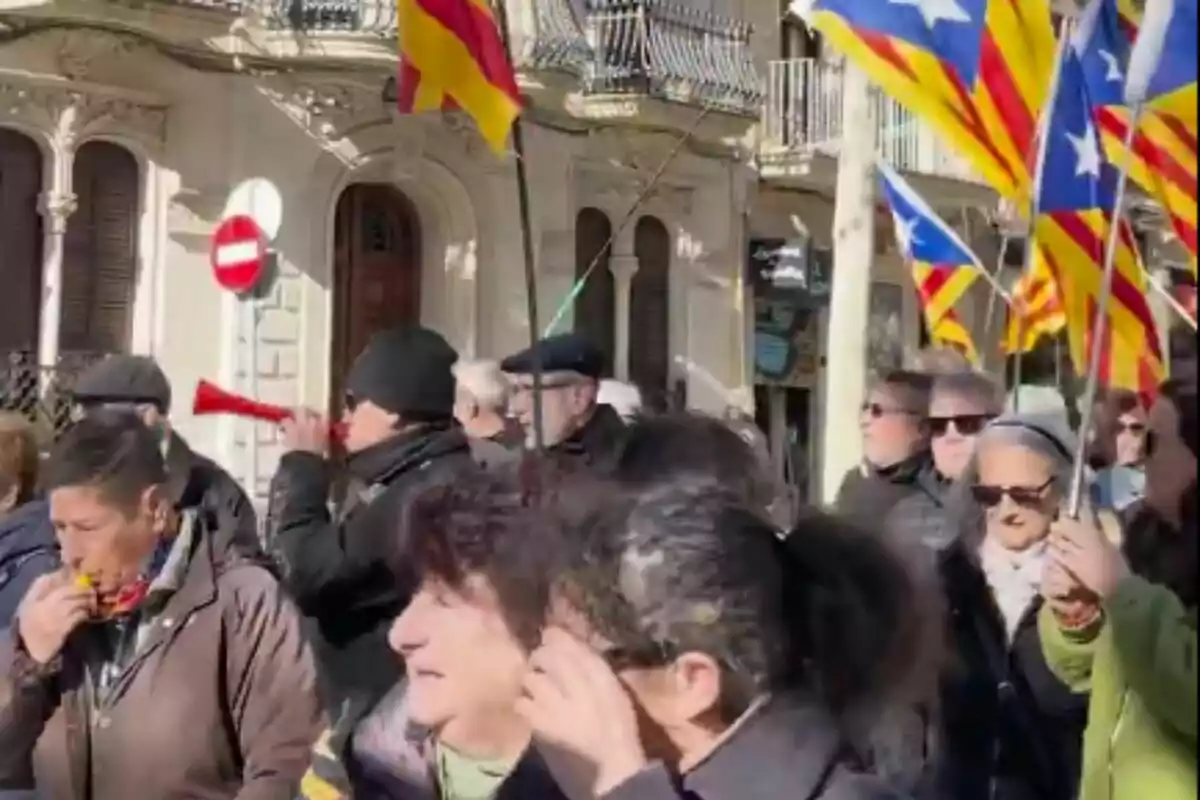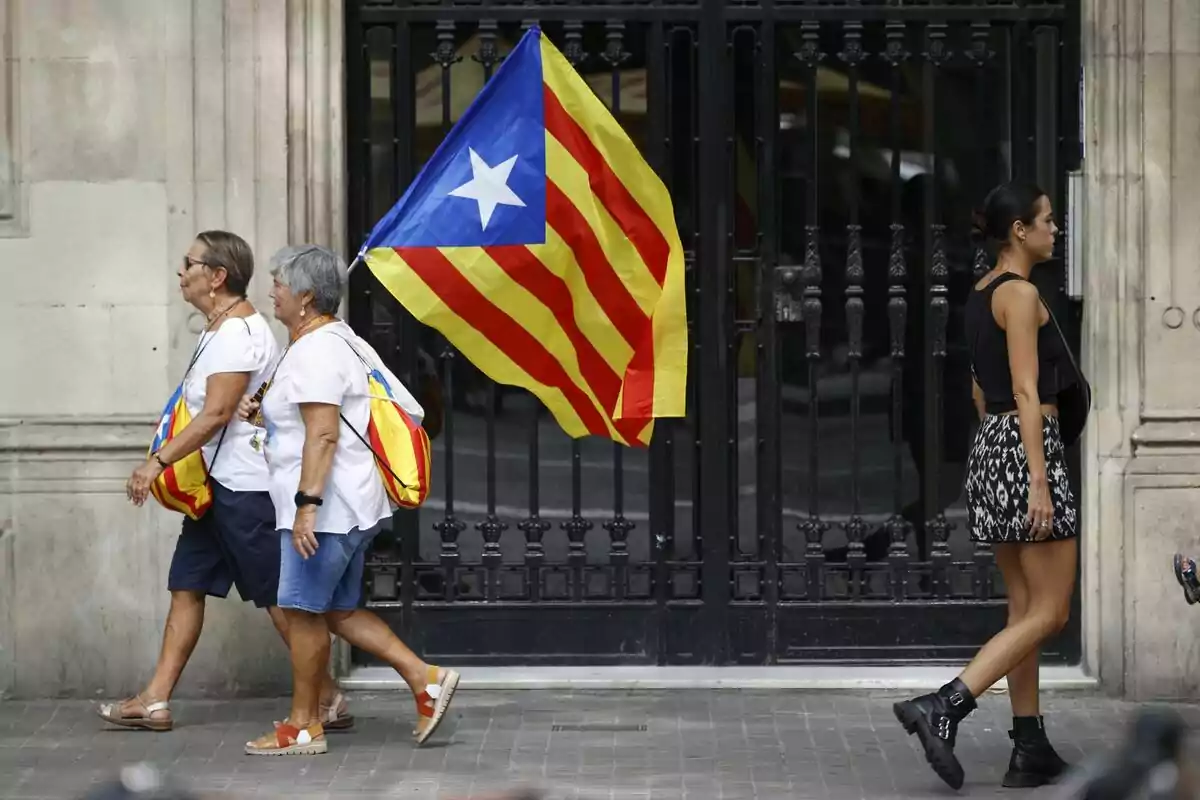
The 'procesismo' exhibits its decline
The setback at the anti-monarchy demonstration portrays the crisis of the pro-independence entities
Only about a hundred people replied to the call of the Assemblea Nacional Catalana (ANC) this Monday to "expel" the monarchy from Catalonia. The images shared by the ANC itself on its social media demonstrate the deep demobilization of the so-called civic independence movement. This also highlights the decline of the pro-independence parties and their satellites.
A few years ago, the monarchy was a powerful mobilizing element for the independence movement. But today, not even the figure of Felipe VI serves to attract the masses.

Grassroots independence supporters feel that the parties and entities have deceived them, and that's why they turn their backs on them. Gradually, there is also a deactivation of Catalanism's aspirations for independence. According to the latest survey by the CEO, the Generalitat's opinion studies center, independence sentiment has hit a low since the start of the Procés.
This means not only that the independence movement is less mobilized, but also that there are fewer and fewer independence supporters. A trend favored by the drift of parties like ERC and Junts, but also the discredit of entities like the ANC and the Consell de la República.
The ANC and the Consell at a Critical Point
The demobilization of the independence movement evidenced in yesterday's protest against the monarchy seriously questions the new roadmap of the ANC. The entity led by Lluís Llach approved a new strategy last January. They are betting on civil disobedience and non-violence to force plebiscitary elections in Catalonia, as a form of referendum.
The anti-monarchy protest, with hardly any attendance and generally with elderly people, shows that right now the ANC doesn't have enough strength. At least not enough to put the State against the ropes as suggested in their roadmap.
Meanwhile, as the ANC adds another failure, the Consell de la República is struggling to survive agonizingly amid internal civil war and scandals. On the eve of the elections to choose a new president, accusations of corruption continue to affect Toni Comín and Carles Puigdemont's circle. This has accelerated the wave of resignations in what was intended to be a government in exile and has ended up being a setup for the benefit of its leaders.
Turning Their Backs on Reality
Despite the clear signs of exhaustion, the pro-independence parties and entities continue to turn their backs on reality. The ANC set 2028 as the date for the next referendum and Catalonia's independence. ERC hasn't been as bold and has set 2031 as the date for a new independence vote in Catalonia.
The reality is that their leaders, when it came down to it, either hid or fled abroad. This explains why neither Carles Puigdemont nor Oriol Junqueras are now capable of leading a new phase in the independence movement. And yet they have been re-enthroned in their new parties, which are inevitably heading toward disaster.
More posts: